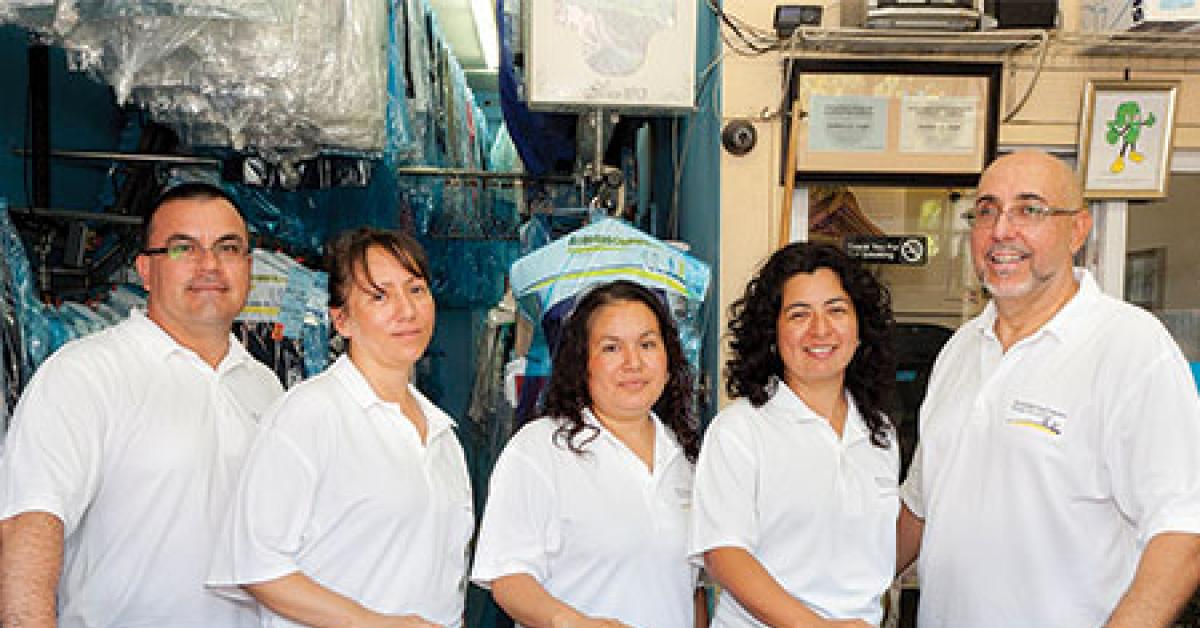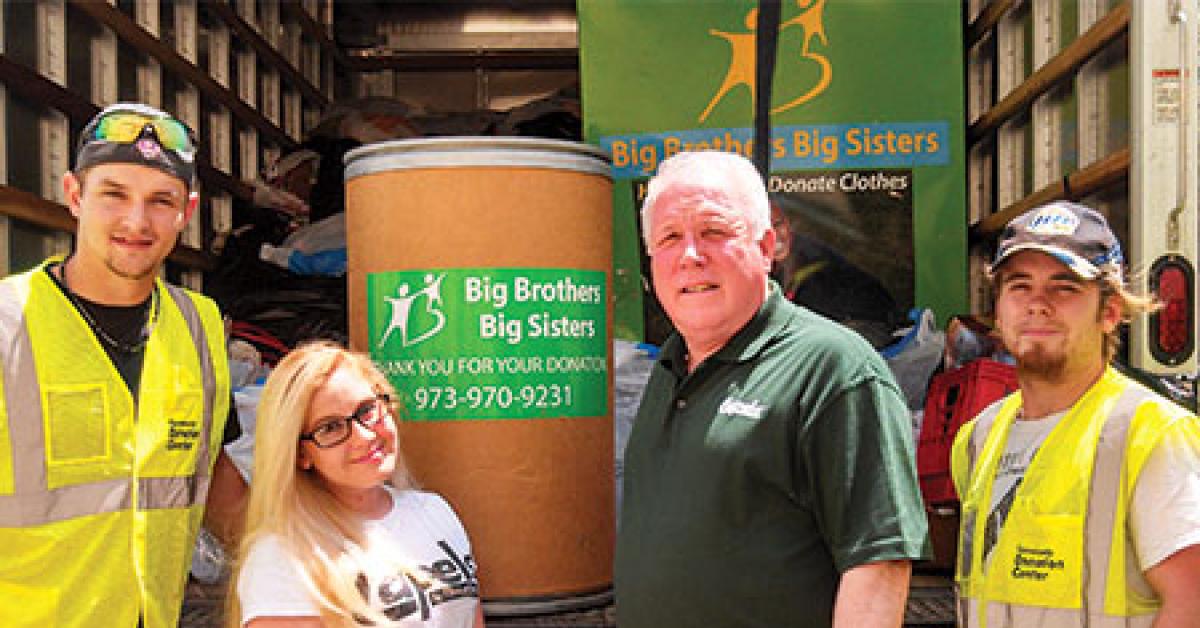CHICAGO — Good or bad, your company has a brand. It’s the image it projects and the experience it delivers. Is doing good work enough? Probably not. How people perceive your drycleaning operation—in total—is your brand and affects how they respond to the services you offer.
Choose to play it low-key, say, by relying on the generic “DRY CLEANER” sign above the front door to drive traffic and you may find yourself trying to eke out a living in the shadow of your competition.
Let’s take a look at a sampling of cleaners, both independent and franchise, and how they create name recognition and define their marketplace positioning for the greatest chance of success.
MAKING A PROMISE
Second-generation dry cleaner Edward Acosta Jr., owner of Acosta’s Cleaners in Middle Village, N.Y., equates branding with making a promise. He started his first delivery route in 1992 and built the business into a retail storefront that offers dry cleaning and wet cleaning, valet service, fire restoration and more to Manhattan residents, all out of a production space that barely exceeds 1,000 square feet.
“A brand is not having an attractive, user-friendly website with great information,” says Acosta, whose business was named Outstanding Package Plant in the 53rd annual American Drycleaner Plant Design Awards competition. “Simply put, it’s a promise to our customers, it’s a pledge, a philosophy which we live by as a team. For us, it’s a dedication to quality, service and consistency that allows us to reinforce the brand until it takes hold.”
He says his company’s brand permeates every aspect of his business, starting with the logo and the trademarked tagline, “Pamper Your Clothes, with us.” Acosta credits his business success in part to his affiliation with the National Cleaners Association and its assistance in helping him and his staff stay informed about processing techniques and problem garments.
How can a small business measure how its branding efforts are doing?
“Success. The numbers,” Acosta says. “If people are satisfied with your brand, they’re willing to pay for that brand, and they’re willing to repeat that business over and over.”
Branding your business is not something you do only in the beginning, according to Acosta. It’s got to be an ongoing endeavor.
“It’s not something that happens overnight,” he says. “It’s constantly reinforcing your brand until it takes hold. It’s about constantly doing the right things. Before you know it, you’ll have a brand that people associate themselves with, saying that you’re the go-to cleaners.”
START TO FINISH
Kevin Dubois is the president and CEO of Lapels, an environmentally friendly full-service drycleaning franchise headquartered in Hanover, Mass. Started in 2000, the franchisor now boasts 53 U.S. stores and another 14 “in some form of build right now.”
“We were kind of built on the foundation of a hub and spokes business model, with a really neat-looking store that sort of builds a lean and mean plant that can service three to five satellite stores,” says Dubois, who bought the Lapels franchise from its founder two years ago. Each store targets a customer base that resides within a 3-mile radius.
“We look at ourselves as a way to offer a real high-quality cleaning at a typical, average price, creating a great value,” Dubois says. “We really like to be very much involved with the community. We’re just getting started with our Big Brother Big Sister clothing drive. It’s a way for our guys to get involved in the community.”
The Lapels brand permeates everything in a franchisee’s operation, he says.
“Start to finish, it’s real important. And that’s everything from the signage above the storefront, to the look and feel of the call area, to the equipment in our plants, to the in-store programs that we run to the packaging of the garments.”
Late last year, a Forbes magazine article listed The Top 7 Characteristics of Successful Brands. Contributor Jayson Demers identified them as 1) Audience knowledge, 2) Uniqueness, 3) Passion, 4) Consistency, 5) Competitiveness, 6) Exposure and 7) Leadership.
“What’s most important about building a store, or building a brand, and at the end of the day, we feel like it’s got to be all of those things,” Dubois says. “Leadership has to push the other things forward.
“Our franchise owners are in the store day in and day out. Our stores are open 72 hours a week, and they’re making a lot of decisions … in terms of marketing and customer service. That leadership, whether it’s from our side pushing out new marketing ideas or PR, to the day-to-day decisions they’re making, I think it sets the table for the rest of those items.”
Have a question or comment? E-mail our editor Dave Davis at [email protected].



